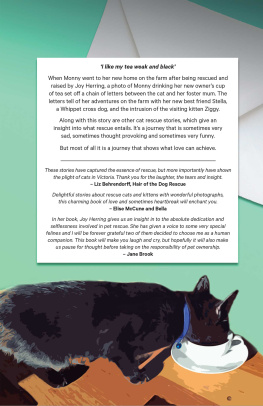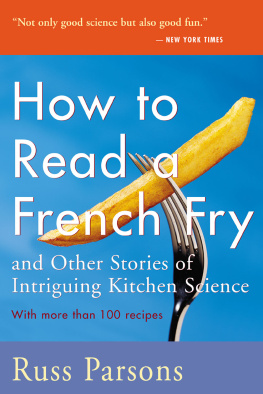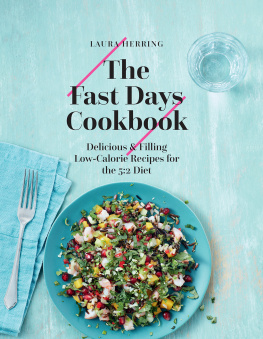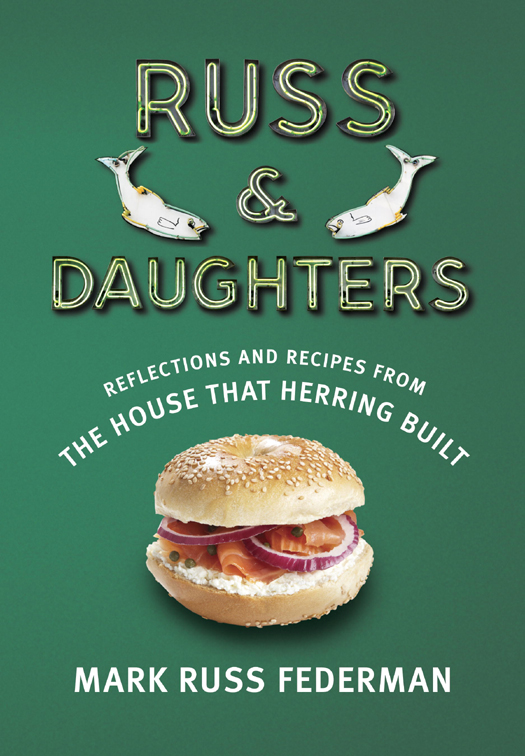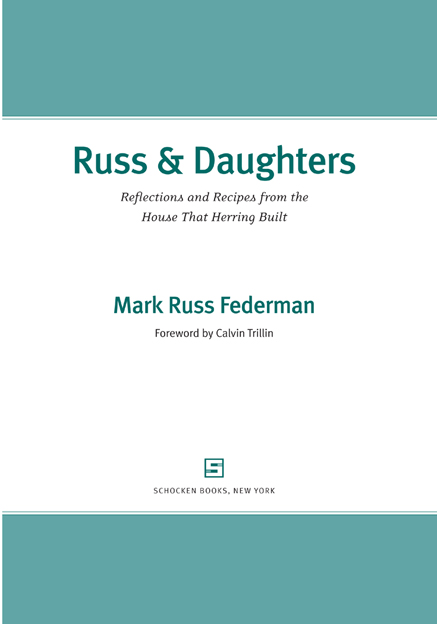Copyright 2013 by Mark Federman
Foreword copyright 2013 by Calvin Trillin
All rights reserved. Published in the United States by Schocken Books, a division of Random House, Inc., New York, and in Canada by Random House of Canada Limited, Toronto.
Schocken Books and colophon are registered trademarks of Random House, Inc.
Unless otherwise indicated, all photographs are courtesy of the author and Russ & Daughters. Color photographs copyright Belathe Photography.
Grateful acknowledgment is made to Columbia University Press for permission to reprint The Soul of a Store by Mark Russ Federman from Gastropolis: Food and New York City, edited by Annie Hauck-Lawson and Jonathan Deutsch. Copyright 2009 by Columbia University Press. Reprinted with permission of the publisher.
Library of Congress Cataloging-in-Publication Data Federman, Mark Russ.
Russ & Daughters : reflections and recipes from the house that herring built / Mark Russ Federman ; foreword by Calvin Trillin.
p. cm.
eISBN: 978-0-8052-4311-6
1. Russ & DaughtersHistory. 2. AppetizersNew York (State)New York.
3. Jewish cookingNew York (State)New York. I. Title. TX 945.5. R 86 2013 641.5676dc23 2012023902
www.schocken.com
Jacket photographs by Lesley Unruh
Jacket design by Kelly Blair
v3.1
To Hattie, Ida, and Annethe Russ Daughters
Without them, there would be no store and no stories
CONTENTS
FOREWORD BY CALVIN TRILLIN
When my daughters were small, I used to go to Russ & Daughters on Sunday mornings to have them appreciated. Oh, sure, Id buy some smoked salmon while I was there. Id get a little whitefish salad. I might buy a smoked trout or two. On some Sundays, I would spend a few minutes pondering my fathers dismissal of chopped herring as the sort of thing Litvaks (Jews from Lithuania) eat; my father, who was brought as an infant to Missouri from the Ukraine, considered Litvaks, including my maternal grandmother and her entire family, faintly risible. Then Id get some chopped herring. I might treat myself to some pickled lox. (Yes, of course, with cream and onions; it is customary for me to eat everything with everything.) It was all merchandise of the highest quality, of courseall the more delectable to me because of having endured a childhood without such food in Kansas City, where, as one of my daughters observed at the age of four, the bagels just taste like round bread. Still, I was there to have my daughters appreciated, and in that endeavor I was never disappointed.
At Russ & Daughters a particularly adorable two-year-old didnt get the quick smile and cursory Isnt she dear that you might hear from, say, the proprietor of an English tearoom. The daughters of Joel Russ, The Founder, were running the place then, along with their husbands, and they were people who had fully absorbed the profound teaching of Willy Lomans wife: Attention must be paid. Am I just imagining it, or did one of them, while emerging from behind the counter to get within cheek-pinching range of one of my daughters, sometimes say to her colleagues, How can you stand there and slice fish with a face like that in the store? Once, when my girls were still small, a friend of mine informed me that he had found a smoked-salmon supplier in the Canadian Maritimes who shipped superb salmon at much lower than New York prices. No, thank you, I said. There are some things that cannot be done by mail.
While the salmon was being sliced, I would entertain my daughters with my only magic trick, palming gummy-fish and pretending to pull one out of one of their ears. Then we would go next door to Bens Dairy, a tiny store that was run by a strong-minded man who once responded to a French embargo on spare parts for Israeli jets by putting up a sign that said UNTIL GENERAL DE GAULLE CHANGES HIS POLICY TOWARD ISRAEL , BEN SELLS NO MORE FRENCH CHEESE . At Bens wed get cream cheese and a loaf of baked farmers cheese with scallions. Then wed go next door to Tanenbaums Bakery, where we purchased, among other baked goods, some gnarly and oniony little black pumpernickel bagels that my older daughter devoured on Sunday and dreamed of for the rest of the week.
Bens Dairy and Tanenbaums are long gone, most of their specialties folded into the Russ & Daughters inventory. My daughters grew up, left for college, and eventually started families of their own. But Russ & Daughters still looks about the same as it did when I described it, around forty years ago, as a refutation of the false teaching that a store that sells pickled herring cannot have character and a clean display case at the same time. There have been some changes, of course. The store shopping bag, for instance, has a contemporary design and no longer bears the old motto Queens of Lake Sturgeon. The shelves include some upscale items that would not have been familiar to The Founder. Still, in the hands of the fourth generation of Russes, Russ & Daughters is essentially unchanged. I know, because I can often be found there on a Sunday morning.
My salmon is still sliced by Herman Vargas, the rare Yiddish-speaking Dominican, who has worked at Russ & Daughters for more than thirty years; I know him as Herman the Artistic Slicer, although he no longer wears a name badge identifying him as that. On Sundays these days, while waiting for Herman to produce slices thin enough to read The New York Times throughnot the big-print edition; Im talking about the regularI pretend to pull gummy-fish out of the ears of my grandchildren. They have been brought to Russ & Daughters to be appreciated.
INTRODUCTION
Its hard to forget your ancestors when theyre staring down at you from the walls above the top shelves. Some of the portraits are near the olives, others are by the dried-fruit baskets, and some are next to the caviar display. Not only are they staring down, but theyre also passing judgment: The showcase glass has fingerprint smudges. The lox knives and cutting board need to be wiped clean. The pickled herrings have to be filled in. Why isnt somebody answering the phone? Someif not mostdays, youd like to forget them, especially when youre tired. But were the Russ family. Were not allowed to be tired. We have been selling herring, lox, caviar, and candy on the Lower East Side of New York City for one hundred years. From the frames above the shelves, the ancestral message is clear: Were only as good as our last quarter pound of lox. This is our yichis.
Yichis is Yiddish for pedigree, or lineage, and in Jewish tradition it means having notable rabbinic ancestors, or ancestors who were community leaders of whatever European village or town your family came from. That mantle is usually passed down from generation to generation along the male line. But Yiddish is a language that adapts itself to the usually temporary residences of Jews who have been forced for the last thousand years from one place to another. And so, on the Lower East Side, yichis has been used to describe any family business that has had the rare good fortune to survive the generational transfer from father to son. In our case, the business was originally passed down not from father to son but from father to daughters. In our family there is no royaltyno rabbis, no community leaders. We are clearly peasant stock, and what is being passed down is not religion but fish: smoked, cured, and pickled.


